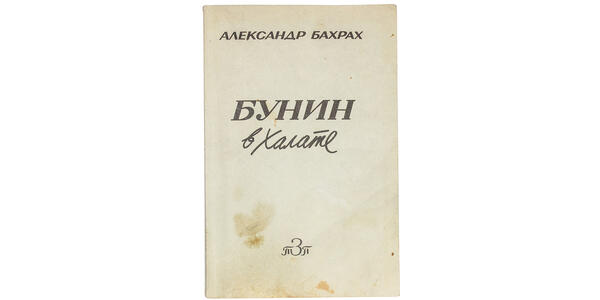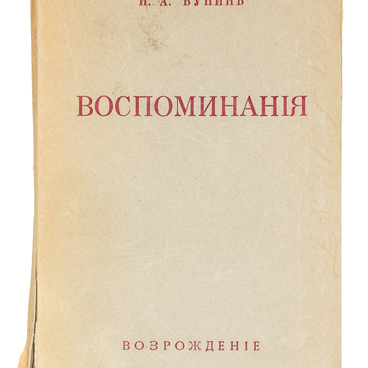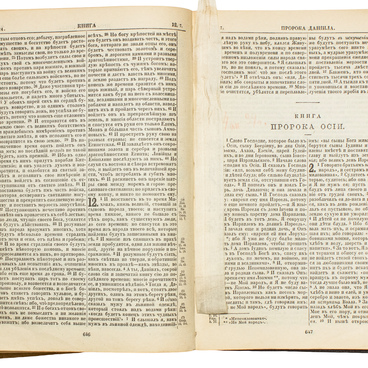‘Bunin in a Robe’ is a memoir written by prominent writer Alexander Bakhrakh, who lived for a long time in the house of Ivan Bunin. He saw him every day — during his work and vacations, even shortly before his death, and witnessed the creation of the novel ‘The Life of Arseniev’.
This edition was published in 1979 in New York. The appendix includes two interviews with Bunin, his facsimile (accurately reproduced signature), the last inscription left the author on the book, as well as Bunin’s letters to Bakhrakh.
Alexander Bakhrakh became friends with Bunin back in 1923. During the Second World War, he lived with the writer’s family in the French villa ‘Jeannette’ and worked as a secretary. They spent more than four years under the same roof from October 1940 until the Liberation of France at the end of 1944. Bakhrakh said that ‘Bunin introduced his guest, or rather, not to emphasize his dependent position, his tenant, to his family, and although he often grumbled at him behind his eyes and could scold him bitterly in letters, or even sharply berate, Bunin was ready to take care of him in every possible way, to stand up for him at critical moments and did not want to part with him.’
Bachrach bitterly regretted that he had not recorded all his conversations with the Nobel Prize laureate. He said that
This edition was published in 1979 in New York. The appendix includes two interviews with Bunin, his facsimile (accurately reproduced signature), the last inscription left the author on the book, as well as Bunin’s letters to Bakhrakh.
Alexander Bakhrakh became friends with Bunin back in 1923. During the Second World War, he lived with the writer’s family in the French villa ‘Jeannette’ and worked as a secretary. They spent more than four years under the same roof from October 1940 until the Liberation of France at the end of 1944. Bakhrakh said that ‘Bunin introduced his guest, or rather, not to emphasize his dependent position, his tenant, to his family, and although he often grumbled at him behind his eyes and could scold him bitterly in letters, or even sharply berate, Bunin was ready to take care of him in every possible way, to stand up for him at critical moments and did not want to part with him.’
Bachrach bitterly regretted that he had not recorded all his conversations with the Nobel Prize laureate. He said that


